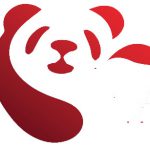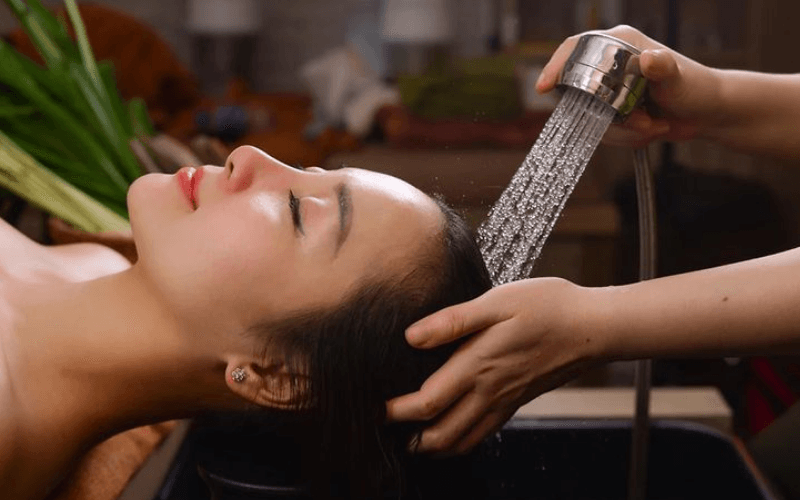Herbal Hair Washing combines traditional massage techniques with natural ingredients to care for hair and health. This method improves blood circulation, reduces stress, and supports healthier hair. Users can perform it at home to save costs compared to spa services. Discover the details in this article from Panda Spa.
1. What is Herbal Hair Washing and Why Try It Now?
Herbal hair washing originates from Eastern medicine, focusing on acupressure and meridian clearing to balance the body. This method not only cleanses hair but also provides deep relaxation. Studies show that scalp massage can significantly reduce stress over time. Practitioners often notice improvements in mental and physical health. This technique is ideal for busy individuals. It encourages experimentation to experience direct benefits. The following section analyzes specific benefits for hair and overall health, helping readers understand why this method is popular.
1.1. Benefits for Hair, Scalp, and Overall Health
Benefits include improved blood circulation and hair growth stimulation. Japanese research indicates hair thickness can increase by about 15% with regular massage. This method also reduces frequent headaches. The scalp becomes cleaner, reducing itchiness and oiliness. Overall health improves due to stress reduction. Spa trends in 2025 show growing demand for natural therapies like this.
1.2. Who Should Try Herbal Hair Washing?
- People with frequent stress or insomnia.
- Those with hair loss or weak hair.
- Office workers with low activity and frequent neck or shoulder pain.
2. Preparing Ingredients and Tools for Home Hair Washing
Preparing ingredients is crucial for effective herbal hair washing. Common herbs include bồ kết, grapefruit peel, and lemongrass. A basic recipe uses 10g of bồ kết with 5 lemongrass leaves to boil water. Essential tools include a massage comb and clean towel. Proper preparation optimizes natural ingredient benefits. Users should choose high-quality herbs to avoid irritation.
2.1. Common Herbs
- Bồ kết: Strengthens hair, adds shine.
- Grapefruit peel: Stimulates hair growth, reduces hair loss.
- Lemongrass: Antibacterial, pleasant fragrance.
- Mugwort: Relaxes the mind, supports blood circulation.
2.2. Essential Tools
- Scalp massage comb.
- Soft, clean towel.
- Stainless steel or clay pot for boiling herbs.
- Comfortable chair for easy handling.
Read more: Herbs in Herbal Hair Washing: Secrets to Healthy Hair from Nature
3. Detailed Guide: 6 Steps for Spa-Standard Herbal Hair Washing
Herbal hair washing involves six steps for spa-like results. The process takes 30–45 minutes, focusing on massage to stimulate acupoints. Start by wetting hair, boiling herbal water, and massaging. Finish with rinsing and conditioning. This method is easy to apply at home. The next section provides specific massage tips to enhance effectiveness, ensuring optimal results.
3.1. Massage Tips for Optimal Results
Proper massage includes circular motions and pressing the Yintang acupoint. Health reports suggest this can reduce neck and shoulder pain by about 25%. Use moderate pressure to avoid scalp damage. Correct techniques increase oxygen to hair follicles, enhancing overall benefits.
3.2. Best Time to Perform
- Evening before bed for relaxation and better sleep.
- 2–3 times weekly for sustained benefits.
- Avoid washing when overly tired or after a heavy meal.
3.3. Combining with Other Therapies
- Essential oil steaming for added relaxation.
- Drinking herbal tea (chamomile, mint) to reduce stress.
- Neck and shoulder massage for full-body benefits.
Read more: Stress Reduction with Herbal Hair Washing: Hair and Mind Care
4. Notes and Common Mistakes
Key notes for herbal hair washing include a frequency of 2–3 times weekly. Avoid strong massage on sensitive scalps to prevent irritation. Use water at a suitable temperature. Common mistakes include using water hotter than 40°C, causing dry hair. Case studies show improvement after one month with proper practice. The table below compares pros and cons, helping readers decide easily.
| Advantages | Disadvantages |
|---|---|
| Deep relaxation, stress reduction | Requires preparation time |
| Improves hair and scalp | Not suitable for sensitive scalps if done incorrectly |
4.1. Common Mistakes
- Using overly hot water.
- Washing too frequently.
- Massaging too hard, causing scalp damage.
- Using low-quality herbs.
4.2. Solutions for Optimal Results
- Keep water temperature at 35–40°C.
- Wash 2–3 times weekly.
- Use gentle pressure during massage.
- Choose herbs from reputable sources.
Read more: Herbal Hair Washing with Hot Stone Massage: 2025 Relaxation Guide
FAQ: Answers to Common Questions About Herbal Hair Washing
Does herbal hair washing cause hair loss?
No, when done correctly, it stimulates hair growth rather than causing loss. Studies show a 30% reduction in hair loss in some cases. Always massage gently to avoid scalp damage.
Who is herbal hair washing suitable for?
Suitable for those with weak hair, stress, or headaches. Pregnant women should consult a doctor. Washing 2–3 times weekly yields noticeable benefits after a month.
Home vs. spa herbal hair washing?
Home washing saves costs but requires preparation, while spas offer professional services. Both are effective if done correctly. Spa sessions typically cost 200,000–500,000 VND.
Conclusion
Herbal hair washing offers comprehensive benefits for hair and health. Combining natural herbs with massage reduces stress and improves hair. Regular practice ensures the best results.
Read more: Herbal Hair Washing – Panda Spa
———————————————————————
Hotline: 038.3967.775 / 070.818.5397 Email: booking@pandaspa.vn Messenger: Panda Spa Da Nang Kakao Talk: Panda Spa Da Nang Naver: Panda Spa Da Nang Tripadvisor: Panda Spa & Massage In Danang City Address 1: 229 Nguyen Van Thoai, Son Tra – Da Nang Address 2: 225 Nguyen Van Thoai, Son Tra – Da NangCONTACT NOW

